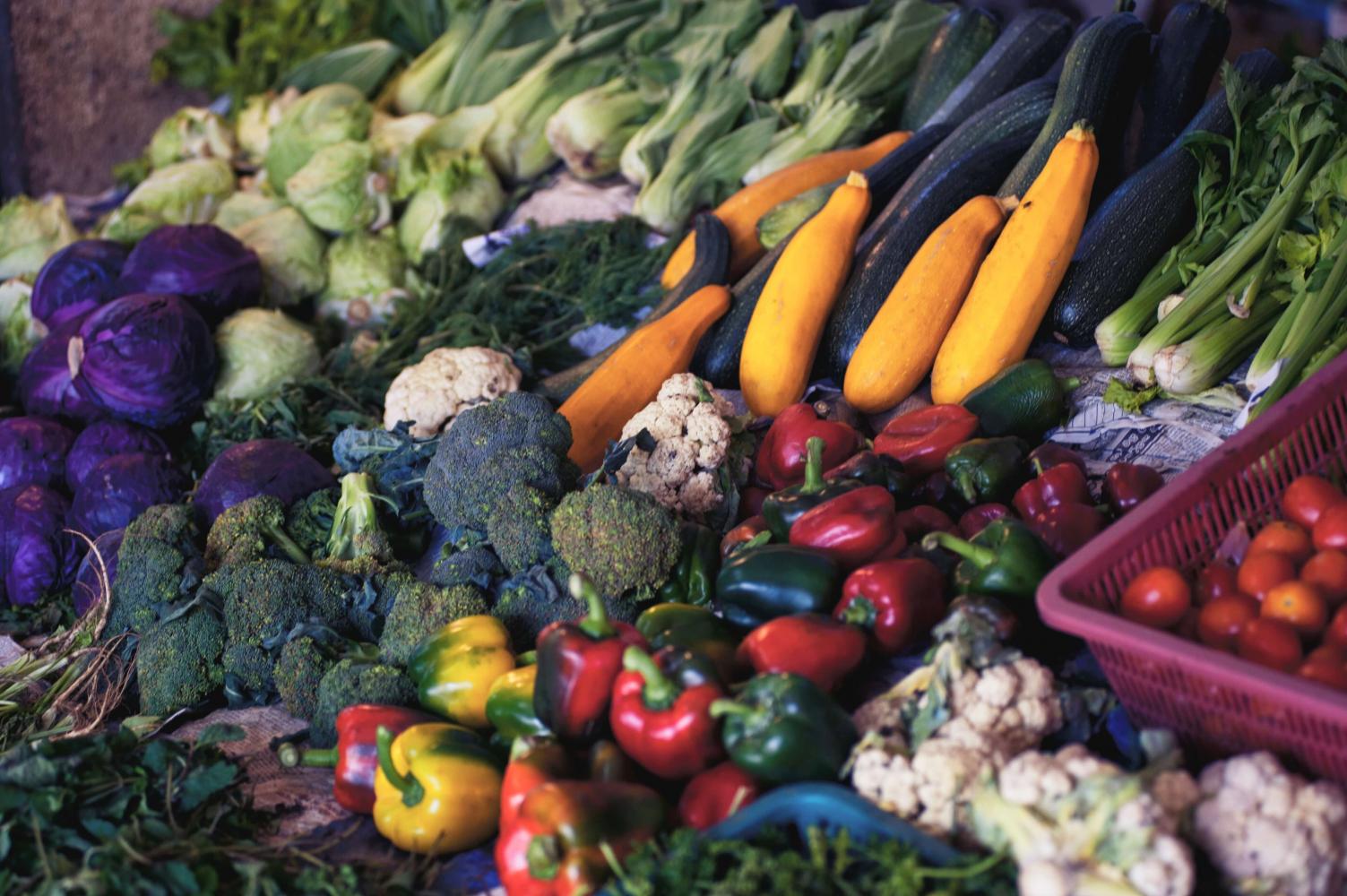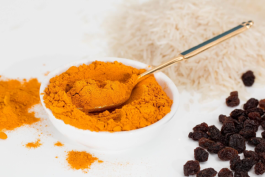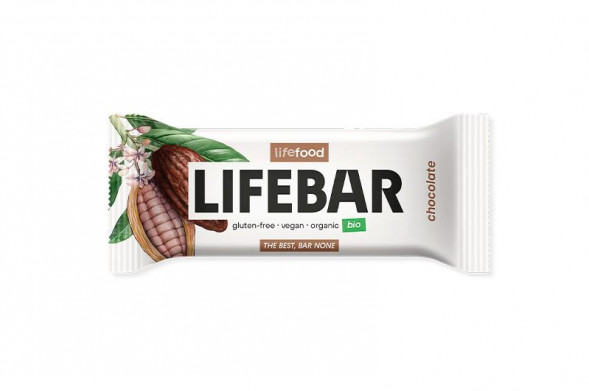Things are changing when it comes to food. Our grand-parents and great-grand-parents would be shocked to see what we are offered these days on our supermarket shelves. Is packaged food really food? Do we know where our food comes from? Can food make us sick? When it comes to eating animal products, yes it can! It is now proven. Find out how and also why eating more plants is a step towards achieving optimum health. If you are hungry for life, its vibrant energy and its delights, a plant-based lifestyle might be your ticket to a happy future.
Vegan or plant-based diet - What is the difference?
First of all, here is a little reminder about the difference between a vegan diet and a plant-based lifestyle. It can get a little confusing so this should help you make sense of it all.
A vegan diet contains only plants (such as vegetables, grains, nuts and fruits) and foods made from plants. Vegans do not eat foods that come from animals, and that includes dairy products, eggs and honey. They also don’t wear anything made from animal such as leather or use products like cosmetics tested on animals. “Veganism is a way of living,” according to the Vegan Society, “which seeks to exclude, as far as is possible and practicable, all forms of exploitation of, and cruelty to, animals for food, clothing, or any other purpose.”
People who choose a plant-based diet usually do it for health reasons rather than religious, cultural, or ethical concerns. They eat mostly vegetables, grains, nuts and fruits as well as other foods made from plants. Although meat, fish, poultry, and other animal products like eggs are allowed, they are eaten less often and only in small quantities.
Following a plant-based diet may simply mean to aim for a healthier way of life, by cutting down on animal products.

Animal product consumption and its impact on our health
Previous generations did not question the quality of meat and dairy products. Production was localised and done in a traditional manner without extensive use of pesticides, antibiotics, hormones etc…. These days, we know that from a nutrition point of view, reducing meat and dairy intake and replacing those with plant foods is very beneficial for the body. Although meat and dairy products provide the body with certain nutrients, they can also cause various health concerns.
Dairy products – healthy foods or health risks?
When it comes to dairy products, it is difficult to ignore the practices followed by industrial farmers. For example, dairy cows are given hormones to grow faster and to produce more milk all year around. These hormones tend to stay in the body of the animals or can be found in their milk. Research shows that steroid hormones found in dairy products can have a negative impact on the human body and can initiate and provoke health conditions such as breast, prostate and endometrial tumours (1). Another example relates to the use of agricultural antibiotics. The overuse of antibiotics amongst livestock for disease prevention has the potential to become a critical threat to human health because it is creating antimicrobial resistance (AMR or AR). This is the ability for a microbe to resist the effects of medication that once was able to successfully treat that particular microbe. Although antibiotic regulations have become more strict in Europe, the risk for antibiotic resistance is a real concern (2).
Finally, there are thoughts that milk may produce mucus in the body. Some people, particularly those with compromised gut health may benefit from eliminating dairy from their diet. But research is limited in that area. (3)
Eating processed and red meat products linked to cancer and cardiovascular disease
Not long ago, we heard in the news about processed meat consumption and the link to an increased risk of bowel cancer. The reason is because processed meats such as bacon, ham, salami and hot dogs are meats that have been preserved by smoking, salting, curing or adding other preservatives (4).
High consumption of red meat is also considered a risk because naturally occurring chemicals formed during digestion have been found to damage the cells that line the bowel. On top of that, cooking meat at high temperature such as pan frying or grilling directly over an open flame causes the production of harmful chemicals. Those chemicals cause changes in DNA that may increase the risk of cancer (5).
Finally, animal products contain some cholesterol and are high in saturated fatty acids. Meat and dairy are the predominant sources in Western diets. Research shows a clear link between Western diets (with high consumption of animal products) and the rise of cardiovascular disease (6).

Animal protein versus Plant protein – which is best?
The standard European and America diets usually contain a large amount of animal protein. It has been shown that this overconsumption of animal protein could potentially cause health conditions such as kidney stones and calcium loss which can affect bone health (7). The recommended amount of protein is 50-60 grams for the average person, but the National Diet and Nutritional Survey has found that people typically eat considerably more – between 75 and 100 grams in a day. With a vegan diet, the protein source comes from plants so it is much more difficult to overconsume protein. And the plant-based diet brings many other benefits to people’s health.
Plant-based diet – 4 proven health benefits and more…
The first thing that comes to mind when we look at a diet based on plants is the vast array of nutrients and the beneficial fibre supplied by fruit, vegetables, grains, nuts etc... When eating a colourful plate of foods, you are providing your body with vitamins and minerals the body cannot produce. As well as keeping you healthy, research shows that a plant-based diet can help with the following (8, 9, 10, 11):
- Weight management and type 2 diabetes
- Cardiovascular Health
- Digestive health and healthy gut microbiome
- Cancer prevention
Including more plant food in our diet is definitely a positive move to achieve optimal health.
4 things to remember when following a plant-based diet
Some nutrients are difficult to obtain through a 100% plant-based diet. It is important to be aware of those in order to avoid deficiencies.
Vitamin B12
Vitamin B12 is only produced by microorganisms in nature and thus, can only be obtained through our diet. Since the most important source of vitamin B12 is animal proteins, anyone following a plant-based diet may lack sufficient quantities of this vitamin in their diets. It is also a reported deficiency within population following a standard diet. Vitamin B12 is needed for blood formation and cell division. Vitamin B12 deficiency is a very serious problem and can lead to macrocytic anaemia and irreversible nerve damage. It is recommended to test for any deficiencies regularly and to supplement the diet with vitamin B12 if necessary (12). It is important to choose quality supplements for greater results. Vitamin B12 patches are the most effective since the vitamin is distributed in the body through the skin, bypassing the digestive system.

Protein
Eating a varied diet will provide the body with the protein it needs. There are many sources of plant proteins including: quinoa, brown rice, pulses, almonds, chia seeds, pumpkin seeds, buckwheat, oats and vegetables such as green leafy vegetables, broccoli, avocado to name a few. Why not discover our Almond Protein Flatbread for a convenient option.
Omega 3 Fatty Acids
A lack of Omega-3 can lead to a fatty acid deficiency. This applies to all diets, not only to plant-based diets. The main difference between plant-based omega-3 versus fish oil comes down to the forms of omega-3s that they contain. Dr Axe explains that “while fish and seafood contain both EPA and DHA, the two active forms of omega-3 in the body, most plant-based sources of omega-3 contain ALA, which must be converted to DHA or EPA before it can be used. Unfortunately, studies show that only about 5 percent of ALA is converted to EPA and only around 0.5 percent is actually converted into DHA. Therefore, the best vegan omega-3 supplement should contain both EPA and DHA for maximum effectiveness. Algae omega-3 supplements, such as spirulina or algal oil, are some of the few plant-based sources on the market that contain these vital essential fatty acids” (13).
Iron
The iron content of plant-based diets is usually adequate. However, it is advised to get your iron levels checked before introducing high quantities of iron-rich foods. Too much iron in the body can cause life-threatening health conditions. Also a B12 deficiency can mask an iron deficiency in some patients so it is important to consult your doctor (14) .
As a reminder, foods rich in iron include lentils, chickpeas, beans, tofu, cashew nuts, chia seeds, ground linseed, hemp seeds, pumpkin seeds, kale, dried apricots and figs, raisins, quinoa. Feel free to review our range of raw crackers which are made with nuts and seeds. A good option to gently boost your iron levels if needed.
A good choice for a healthy long life
Adopting a plant-based lifestyle is a gentle way of life. Those who choose to embrace it can do so at their own pace. It encourages us to pay attention to the food that we eat every day. It helps us to reconnect with our own body as well as with nature, the seasons and planet earth.
The Academy of Nutrition and Dietetics’ official position on plant based diets states that “appropriately planned vegetarian, including vegan diets are healthful, nutritionally adequate, and may provide health benefits for the prevention and treatment of certain diseases (14). It is becoming clearer that a vegan diet is proving a good choice if it is consciously balanced in its composition. At Lifefood, we aim to produce the best quality products with vegan ingredients to support good health and happiness for the foreseeable future.

References
1. Malekinejad, H., & Rezabakhsh, A. (2015). Hormones in Dairy Foods and Their Impact on Public Health - A Narrative Review Article. Iranian journal of public health, 44(6), 742–758.https://www.ncbi.nlm.nih.gov/pmc/articles/PMC4524299/accessed on 28th August 2019
2. Chang Q., Wang W., Regev-Yochay G., Lipsitch M., Hanage W.P. (2015) Antibiotics in agriculture and the risk to human health: How worried should we be? Evol. Appl. 2015;8:240–247. doi: 10.1111/eva.12185.https://www.ncbi.nlm.nih.gov/pmc/articles/PMC4380918/accessed on 28th August 2019
3. Bartley J , McGlashan SR. Does milk increase mucus production? Med Hypotheses 2010;74:732–4.doi:10.1016/j.mehy.2009.10.044https://www.ncbi.nlm.nih.gov/pubmed/19932941accessed on 28th August 2019
4. Benarba B. (2018). Red and processed meat and risk of colorectal cancer: an update. EXCLI journal, 17, 792–797. doi:10.17179/excli2018-1554https://www.ncbi.nlm.nih.gov/pmc/articles/PMC6123610/accessed on 28th August 2019
5. Cross AJ, Sinha R. Meat-related mutagens/carcinogens in the etiology of colorectal cancer. Environmental and Molecular Mutagenesis 2004; 44(1):44–55.https://www.cancer.gov/about-cancer/causes-prevention/risk/diet/cooked-meats-fact-sheetaccessed on 28th August 2019
6. Casas, R., Castro-Barquero, S., Estruch, R., & Sacanella, E. (2018). Nutrition and Cardiovascular Health. International journal of molecular sciences, 19(12), 3988. doi:10.3390/ijms19123988https://www.ncbi.nlm.nih.gov/pmc/articles/PMC6320919/accessed on 28th August 2019
7. Song, M., Fung, T. T., Hu, F. B., Willett, W. C., Longo, V. D., Chan, A. T., & Giovannucci, E. L. (2016). Association of Animal and Plant Protein Intake With All-Cause and Cause-Specific Mortality. JAMA internal medicine, 176(10), 1453–1463. doi:10.1001/jamainternmed.2016.4182https://www.ncbi.nlm.nih.gov/pmc/articles/PMC5048552/accessed on 28th August 2019
8. Toumpanakis, A., Turnbull, T., & Alba-Barba, I. (2018). Effectiveness of plant-based diets in promoting well-being in the management of type 2 diabetes: a systematic review. BMJ open diabetes research & care, 6(1), e000534. doi:10.1136/bmjdrc-2018-000534https://www.ncbi.nlm.nih.gov/pmc/articles/PMC6235058/accessed on 28th August 2019
9. Benatar JR, Stewart RAH (2018) Cardiometabolic risk factors in vegans; A meta-analysis of observational studies. PLOS ONE 13(12): e0209086.https://journals.plos.org/plosone/article?id=10.1371/journal.pone.0209086accessed on 28th August 2019
10. Tomova A et al (2019) The Effects of Vegetarian and Vegan Diets on Gut Microbiota; Frontiers in Nutrition. 17th April 2019.https://doi.org/10.3389/fnut.2019.00047accessed on 28th August 2019
11. Norat, T., Bingham, S., Ferrari, P., Slimani, N., Jenab, M., Mazuir, M., … Riboli, E. (2005). Meat, fish, and colorectal cancer risk: the European Prospective Investigation into cancer and nutrition. Journal of the National Cancer Institute, 97(12), 906–916.https://www.ncbi.nlm.nih.gov/pubmed/15956652accessed on 28th August 2019
12. Donaldson MS. (2000) Metabolic vitamin B12 status on a mostly raw vegan diet with follow-up using tablets, nutritional yeast, or probiotic supplements. Ann Nutr Metab;44(5–6):229–34. DOI:http://dx.doi.org/10.1159/000046689accessed on 28th August 2019
13. Dr Axe (2019) Top 8 Vegan Omega-3 Sources: How to Get Vegan Omega-3 Into the Diet https://draxe.com/nutrition/supplements/vegan-omega-3/accessed on 11th August 2019.
14. Solmaz, S., Özdoğu, H., & Boğa, C. (2015). Cobalamin deficiency can mask depleted body iron reserves. Indian journal of hematology & blood transfusion : an official journal of Indian Society of Hematology and Blood Transfusion, 31(2), 255–258. doi:10.1007/s12288-014-0417-xhttps://www.ncbi.nlm.nih.gov/pmc/articles/PMC4375157/ accessed on 28th August 2019
15. Melina V, Craig W, Levin S. et al. (2016) Position of the academy of nutrition and dietetics: vegetarian diets. J Acad Nutr Diet;116:1970-80. https://jandonline.org/article/S2212-2672(16)31192-3/fulltextaccessed on 28th August 2019








